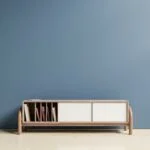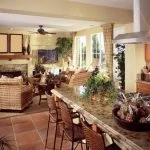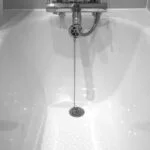The home decor industry has seen a surge in innovation and creativity, thanks to the rise of home decor startups. These startups are revolutionizing the way we think about decorating our living spaces, offering unique and cutting-edge solutions for modern home styling. From online platforms to personalized design services, home decor startups are reshaping the industry with their fresh ideas and entrepreneurial spirit.
With a focus on providing customers with a seamless and customized shopping experience, home decor startups are leveraging technology to transform the way we decorate our homes. By harnessing the power of e-commerce, virtual reality, and artificial intelligence, these startups are making it easier than ever for consumers to discover and purchase the perfect pieces to elevate their living spaces.
Despite the rapid growth of the home decor startup scene, these companies face a myriad of challenges in a highly competitive market. From sourcing sustainable materials to building brand awareness in a crowded industry, home decor startups must navigate obstacles to establish themselves as key players in the market. However, with innovation at their core, these startups continue to push boundaries and set new trends in the ever-evolving world of home decor.
Evolution of Home Decor Trends
The home decor industry has witnessed a remarkable evolution in trends over the years, with each passing era bringing new styles and influences to transform living spaces. From traditional designs to modern minimalism, the evolution of home decor trends reflects the changing tastes and preferences of consumers. Today, the industry is seeing a rise in eco-friendly and sustainable decor options, as well as a renewed interest in vintage and artisanal pieces.
Shift Towards Sustainable Decor
One of the prominent trends shaping the evolution of home decor is the shift towards sustainable and eco-friendly options. With increasing awareness about environmental issues, consumers are seeking products that are made using ethically sourced materials and eco-conscious practices. Many home decor startups have embraced this trend by offering products that are not only stylish but also environmentally friendly, appealing to consumers who prioritize sustainability in their purchasing decisions.
Resurgence of Vintage and Artisanal Pieces
In recent years, there has been a resurgence of interest in vintage and artisanal home decor pieces. Consumers are gravitating towards unique handmade items that tell a story and add character to their homes.
This trend has opened up opportunities for home decor startups to collaborate with local artisans and craftsmen, creating one-of-a-kind pieces that stand out in a sea of mass-produced goods. By tapping into this trend, startups can offer consumers a more personalized touch to their interior spaces while supporting local talent and preserving traditional craftsmanship.
Challenges Faced by Home Decor Startups
Home decor startups face a myriad of challenges as they navigate the competitive landscape of the industry. From sourcing materials to scaling production, these ventures often encounter hurdles that can impact their growth and success. Here are some common challenges faced by home decor startups:
- Limited funding: One of the primary challenges for home decor startups is securing adequate funding to support their operations. Without sufficient capital, it can be difficult for these companies to invest in marketing, product development, and other key areas essential for growth.
- Competition from established brands: Home decor startups often find themselves competing against well-known and established brands in the market. It can be challenging for these newcomers to differentiate themselves and attract customers in a crowded marketplace.
- Supply chain management: Managing the supply chain effectively is crucial for home decor startups to ensure timely delivery of products to customers. Delays or disruptions in the supply chain can lead to dissatisfied customers and damage the reputation of the company.
Despite these challenges, many home decor startups have found ways to succeed by identifying innovative solutions and adapting to changing market dynamics. By addressing these key issues head-on, home decor startups can position themselves for long-term growth and sustainability in the industry.
Key Players in the Home Decor Startup Scene
When it comes to the home decor industry, there are several key players in the startup scene that have made a significant impact. These startups have brought fresh ideas, innovative products, and unique designs to the market, changing the way people approach decorating their homes. Here are some of the top home decor startups that have been making waves:
- Parachute: Known for their luxurious bedding and bath linens, Parachute has become a go-to brand for those seeking high-quality, sustainable home essentials.
- Article: This online furniture retailer focuses on modern design at affordable prices, offering a wide range of stylish pieces for every room in the house.
- Modsy: Using 3D visualization technology, Modsy helps customers visualize their ideal space by creating virtual designs based on their style preferences.
These home decor startups have not only disrupted the traditional industry but have also set new standards for quality, convenience, and customer experience. With their unique approaches to design and distribution, they have gained a loyal following and continue to thrive in an increasingly competitive market.
In addition to these key players, there are countless other home decor startups emerging with innovative ideas and creative solutions. From sustainable furniture brands to personalized decor services, the industry is constantly evolving with new entrants redefining what it means to decorate a space. The vibrant ecosystem of home decor startups promises exciting opportunities for both consumers and entrepreneurs looking to make a mark in this dynamic industry.
Innovative Technologies Transforming Home Decor
Virtual Reality and Augmented Reality in Home Decor
Virtual reality (VR) and augmented reality (AR) have revolutionized the way consumers experience home decor. These technologies allow customers to visualize how a piece of furniture or decor item will look in their own space before making a purchase. For home decor startups, integrating VR and AR into their platforms can provide a competitive edge by offering a more immersive shopping experience. By leveraging these technologies, startups can increase customer engagement and reduce returns, ultimately boosting sales.
Artificial Intelligence and Machine Learning for Personalized Recommendations
Artificial intelligence (AI) and machine learning algorithms are being used by home decor startups to analyze customer preferences and behavior. By collecting data on browsing history, purchase patterns, and social media interactions, AI can generate personalized recommendations for home decor items tailored to individual tastes. This level of customization not only enhances the shopping experience but also increases customer satisfaction and loyalty. Home decor startups that leverage AI technology effectively can gain a strategic advantage in the competitive market.
Smart Home Devices for Seamless Integration
The rise of smart home devices has transformed the way people interact with their living spaces. Home decor startups are incorporating smart technology into their products to offer consumers convenience and efficiency.
From smart lighting systems to thermostats controlled by smartphones, the integration of these devices into home decor items is rapidly gaining popularity. Startups that focus on creating smart home-compatible decor solutions are tapping into a growing demand for connected living environments, positioning themselves for success in the evolving market landscape.
Success Stories of Home Decor Startups
Cozy Nest started as a passion project for its founder, who wanted to bring affordable and stylish home decor options to the market. Through clever marketing strategies and a focus on customer experience, Cozy Nest quickly gained popularity among homeowners looking to refresh their living spaces without breaking the bank.
Another notable success story in the home decor startup scene is “Trendy Abode.” What set Trendy Abode apart from its competitors was its emphasis on sustainability and eco-friendly products.
By partnering with local artisans and using recycled materials, Trendy Abode not only captured the attention of environmentally conscious consumers but also garnered praise for its commitment to social responsibility. This approach not only helped Trendy Abode stand out in a crowded market but also contributed to its overall success and growth.
The success stories of these home decor startups serve as inspiration for aspiring entrepreneurs looking to enter the industry. By focusing on creativity, customer needs, and staying ahead of trends, these startups have carved out their own niche in the competitive world of home decor. Their journeys highlight the potential for innovation and disruption within the home decor space, showcasing how small startups can make a big impact with the right vision and execution.
| Startup Name | Unique Selling Proposition |
|---|---|
| Cozy Nest | Affordable and stylish home decor options |
| Trendy Abode | Emphasis on sustainability and eco-friendly products |
Tips for Starting a Home Decor Startup
Starting a home decor startup can be an exciting venture for entrepreneurs looking to tap into the growing market of interior design and home goods. To kickstart your journey in this industry, it is essential to first identify your niche and target audience. Whether you focus on eco-friendly products, luxury designs, or affordable decor solutions, having a clear vision will set the foundation for your business.
Next, establishing a strong online presence is crucial in reaching potential customers in today’s digital age. Utilize social media platforms, create a user-friendly website, and invest in online marketing strategies to showcase your products and connect with your target market. Building a brand that resonates with consumers and differentiates you from competitors is key to standing out in the competitive home decor market.
Moreover, forming partnerships with suppliers, manufacturers, and other industry professionals can help streamline your production process and enhance the quality of your products. Collaborating with influencers or interior designers can also increase brand visibility and credibility. By prioritizing customer service, innovation, and sustainability in your business model, you can create a strong foundation for long-term success in the home decor startup industry.
| Key Points | Details |
|---|---|
| Identify Your Niche | Focus on eco-friendly products, luxury designs, or affordable solutions. |
| Establish Online Presence | Utilize social media, create a website, and invest in online marketing. |
| Form Partnerships | Collaborate with suppliers, manufacturers, influencers to enhance production process. |
Future of Home Decor Startups
As the home decor industry continues to evolve, the future of home decor startups looks promising with various exciting trends on the horizon. With changing consumer preferences and advancements in technology, there are endless opportunities for innovation and growth in this sector.
One of the key trends to watch in the coming years is the increasing focus on sustainable and eco-friendly home decor products. Consumers are becoming more conscious about the environmental impact of their purchases, leading to a rising demand for sustainable and ethically sourced home decor items. Home decor startups that prioritize sustainability in their products and processes are likely to gain a competitive edge in the market.
Another trend shaping the future of home decor startups is personalization. With advancements in technology, such as augmented reality and artificial intelligence, companies can now offer personalized shopping experiences to their customers. From customized furniture pieces to tailor-made design solutions, home decor startups have the opportunity to create unique offerings that cater to individual tastes and preferences. By embracing personalization, startups can enhance customer satisfaction and loyalty.
In conclusion, the future of home decor startups is bright with opportunities for growth and innovation. By staying ahead of trends such as sustainability, personalization, and technological advancements, home decor startups can carve out a niche for themselves in the competitive market. With creativity, passion, and a commitment to delivering exceptional products and services, these startups have the potential to thrive and make a lasting impact on the ever-evolving world of home decor.
Frequently Asked Questions
Is Home Decor a Good Business to Start?
Home decor can be a lucrative business to start, as it caters to individuals looking to beautify their living spaces. With the right products and marketing strategies, a home decor business can thrive in a competitive market.
How Can I Start My Own Home Decor Business?
To start your own home decor business, you should begin by conducting thorough market research to identify trends and customer preferences.
Develop a unique selling proposition that sets you apart from competitors, create a detailed business plan outlining your goals and strategies, secure necessary permits and licenses, source high-quality products at competitive prices, build an online presence through a website and social media platforms, and establish relationships with suppliers and manufacturers.
How to Start Selling Interior Decor?
If you want to start selling interior decor items, start by defining your target market and identifying the specific types of products they are interested in purchasing. Consider setting up an e-commerce website or utilizing existing online platforms like Etsy or Amazon to reach a wider audience. Create visually appealing product listings with high-quality images and detailed descriptions to attract potential customers.
Utilize social media marketing strategies to promote your products and engage with followers. Additionally, consider attending trade shows or markets to showcase your products in person and network with other industry professionals.

I’m thrilled to be your companion on this exciting journey through the world of home decor and design. With a passion for turning houses into homes and a keen eye for the finer details, I’m here to help you transform your living spaces into beautiful, functional, and meaningful havens.





